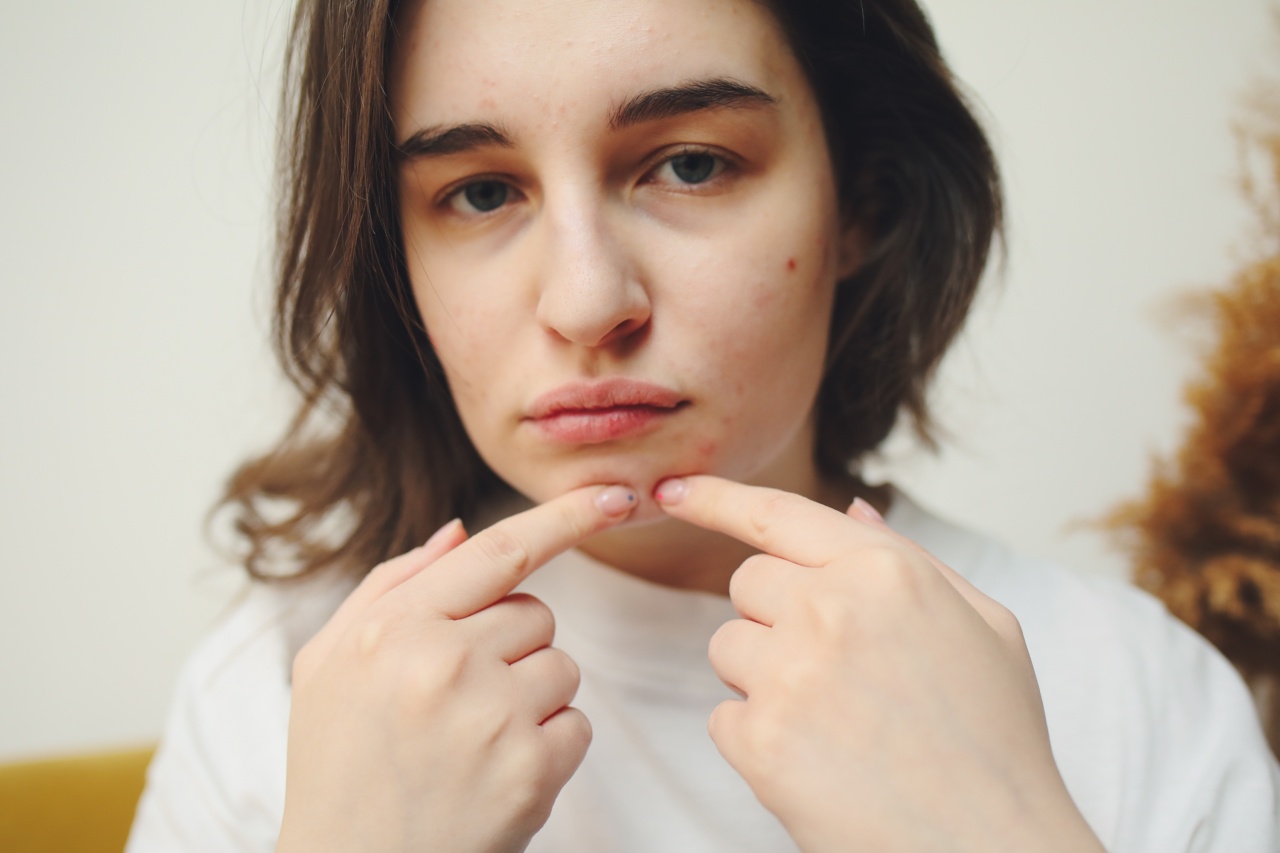Acne is a common skin condition that affects millions of people worldwide. It can be not only physically uncomfortable but also psychologically distressing. One frequent factor that contributes to the development and worsening of acne is anxiety.
The Relationship between Anxiety and Acne
Stress and anxiety have long been known to impact our overall health, including our skin. When we experience anxiety, our body releases stress hormones such as cortisol, which can trigger inflammation and excessive oil production in the skin.
This can lead to clogged pores, bacterial growth, and ultimately, the formation of acne.
Furthermore, anxiety can worsen existing acne by prompting individuals to engage in behaviors that aggravate their skin.
Stressful situations often lead to poor dietary choices, inadequate sleep, and neglect of skincare routines, all of which can contribute to acne breakouts.
The Vicious Cycle: Acne and Anxiety
The relationship between anxiety and acne is often a vicious cycle. Acne lends itself to feelings of insecurity, embarrassment, and low self-esteem, which can further worsen anxiety.
Individuals with acne may avoid social interactions or public appearances, fearing judgment or ridicule. This avoidance contributes to heightened anxiety, perpetuating the cycle.
Conquering Anxiety and Taking Charge of Your Skin
Fortunately, there are strategies and lifestyle changes that can help break the cycle and manage both anxiety and acne effectively.
By addressing anxiety, you can not only improve your overall well-being but also potentially see a reduction in acne breakouts.
1. Stress Management Techniques
Implementing stress management techniques can significantly reduce anxiety levels and potentially prevent acne flare-ups:.
a) Exercise regularly: Engage in physical activities such as yoga, jogging, or dancing to release endorphins, which are natural mood boosters.
b) Practice mindfulness and meditation: Mindfulness exercises and meditation can help calm the mind, reduce stress, and improve overall mental well-being.
c) Breathing exercises: Deep breathing exercises can activate the body’s relaxation response, reducing anxiety levels.
2. Skincare Routine
Establishing and maintaining a consistent skincare routine is vital for managing acne. Consider the following tips:.
a) Gentle cleansing: Use a mild cleanser to wash your face twice daily. Avoid harsh scrubbing, as it can irritate the skin and worsen acne.
b) Exfoliation: Incorporate exfoliation into your routine to remove dead skin cells and unclog pores. Be cautious not to over-exfoliate, as it can lead to irritation.
c) Moisturization: Use a non-comedogenic moisturizer to keep your skin hydrated without clogging pores.
d) Spot treatments: Apply spot treatments containing benzoyl peroxide or salicylic acid to target individual pimples.
3. Healthy Diet
Consuming a balanced diet is essential for both mental and physical well-being. Make sure to:.
a) Eat a variety of fruits and vegetables: These provide essential vitamins and minerals that support skin health.
b) Limit processed foods: High intake of processed foods can contribute to inflammation and exacerbate acne.
c) Stay adequately hydrated: Drinking enough water helps flush out toxins and maintain skin hydration.
4. Sleep Hygiene
Adequate sleep is crucial for managing anxiety and maintaining healthy skin:.
a) Establish a regular sleep schedule: Try to go to bed and wake up at the same time every day, even on weekends.
b) Create a sleep-friendly environment: Ensure your sleeping environment is dark, quiet, and at a comfortable temperature.
c) Avoid stimulants before bed: Limit caffeine and electronic device usage before bedtime, as they can interfere with sleep quality.
5. Seek Professional Help
If your anxiety and acne persist despite implementing self-care strategies, it is essential to seek professional help. A dermatologist can provide personalized advice and, if necessary, prescribe medications to manage your acne.
Additionally, a therapist or counselor can help you develop coping mechanisms to reduce anxiety and its impact on your life.
Saying Goodbye to Acne and Anxiety
By actively addressing anxiety and implementing lifestyle changes, it is possible to break the vicious cycle of acne and anxiety.
Prioritizing stress management techniques, adapting a consistent skincare routine, maintaining a healthy diet, optimizing sleep hygiene, and seeking professional help when needed will ultimately contribute to clearer skin and improved overall well-being.






























